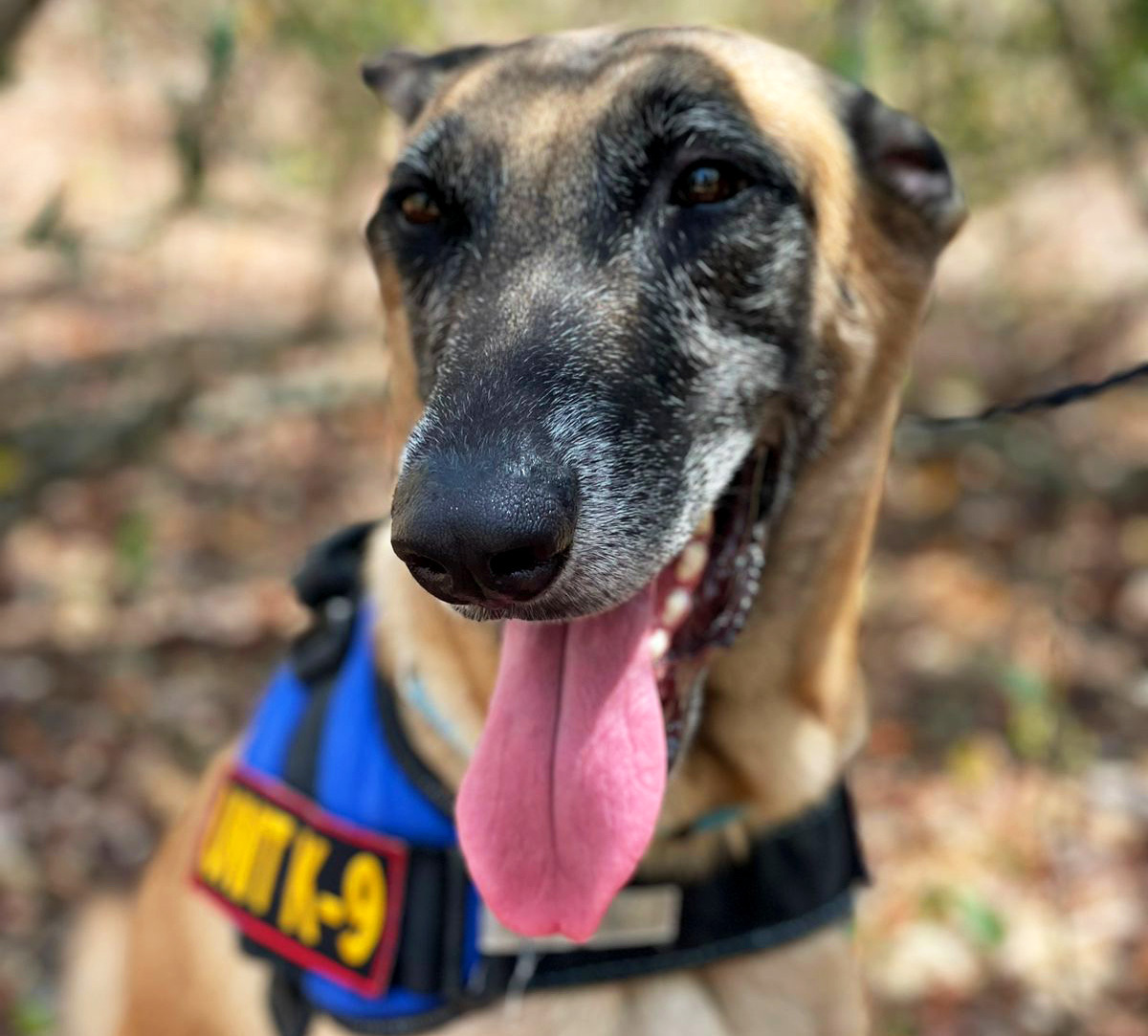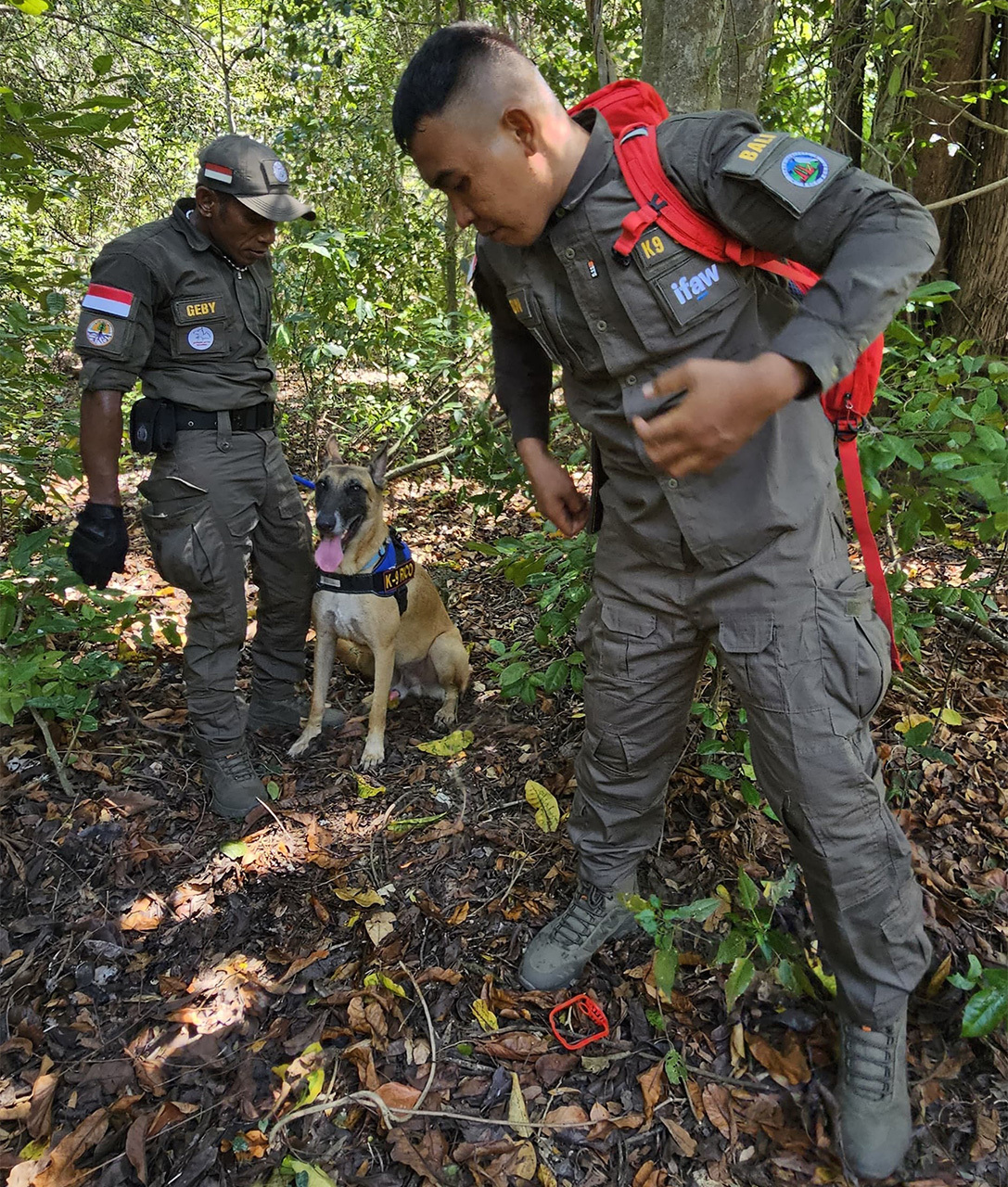Protecting Indonesia’s endangered wildlife
Protecting Indonesia’s endangered wildlifeMeet the dogs helping protect one of the world’s rarest animals
Meet the dogs helping protect one of the world’s rarest animals
Tracking dogs are tasked with protecting one of the most endangered animals on the planet.
The Javan rhino is the rarest of the world’s five remaining rhino species. They once roamed across South and Southeast Asia but can now only be found in Ujung Kulon National Park, a protected area on the island of Java, Indonesia. Fewer than 20 mature individuals remain.

But these rhinos’ last refuge faces a critical emergency, with poaching incidents on the rise.
IFAW has been working with our partners Jakarta Animal Aid Network (JAAN) in Indonesia to train two dogs to help combat poaching and trafficking of this rare species. Dogs can play a critical role in wildlife conservation in a number of ways, including as part of a rapid response team stopping poachers in their tracks.
‘For the dogs, it’s a game,’ says JAAN co-founder Femke den Haas. ‘They love the search while they are rescuing and protecting one of the world’s rarest species.’
Future canine heroes
These two dogs, both Belgian Malinois, were rescued by JAAN and have been undergoing specialised training from IFAW’s K9 Technical Director Frederic Chappée since November 2024. The training is based on remote technical support combined with field sessions.
The dogs, named Rimba and Rico, had no previous tracking experience but are showing great promise. They can successfully track human trails that are 1.5 kilometres long and 1.5 hours old. The goal is for them to be able to follow a trail at least two kilometers long and four hours old.
The team aims to train the dogs so they can track poachers by following their movements and detect objects abandoned or hidden along the poachers’ paths, such as snares or weapons.

‘These dogs represent a strategic asset in combatting poaching, particularly in Ujung Kulon National Park, where the survival of the last Javan rhinos is at stake,’ Frederic says.
While the dogs continue their training, they can be deployed for deterrence purposes by joining patrols in villages surrounding the park, until they are ready to work as tracking dogs.
‘We are extremely grateful for our collaboration with IFAW and the supervision and training with Frederic,’ Femke says. ‘His professional guidance and support have really made a dream come true—to set up Indonesia’s first dog tracking unit to save and protect one of the world’s most critically endangered species.’
How IFAW fights wildlife trafficking in Indonesia
IFAW has been working with JAAN for more than 10 years to disrupt wildlife trafficking networks, train law enforcement teams, and ensure animals confiscated from illegal trade receive the best care possible.
Our work with the JAAN K9 Unit is just one example of how IFAW works with dogs to protect or rescue other animals.
In Zimbabwe, IFAW and our partner ZimParks work with dogs to track potential poachers in the country’s largest nature reserve, Hwange National Park. In Australia, IFAW works with the University of the Sunshine Coast’s Detection Dogs for Conservation team to search for and rescue koalas and collect koala scat to better understand their health.
Related content
every problem has a solution, every solution needs support.
The problems we face are urgent, complicated, and resistant to change. Real solutions demand creativity, hard work, and involvement from people like you.